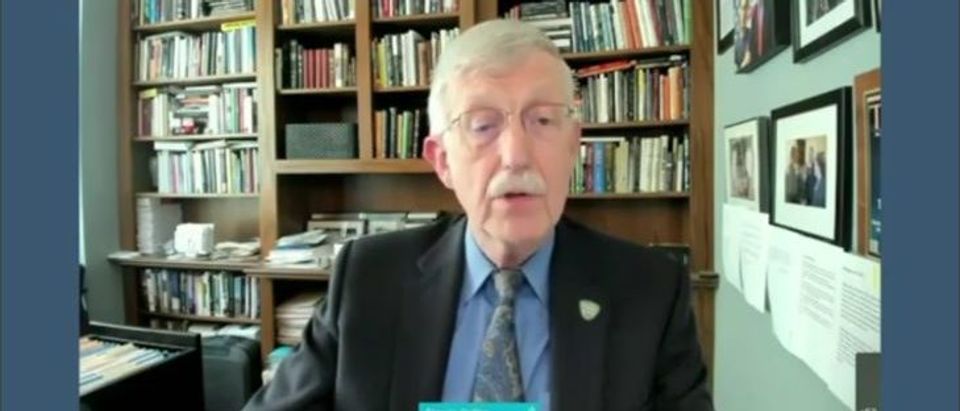National Institutes of Health (NIH) Director Francis Collins said during an April 28 congressional hearing that he believes more research into the origins of COVID-19 is needed.
“I do believe that an investigation following on the original WHO investigation is needed,” Collins said in response to a question from Republican Washington Rep. Cathy McMorris Rodgers. Collins wrote in March 2020 that “scientific evidence that this novel coronavirus arose naturally … debunks” lab leak claims.
McMorris Rodgers asked Collins whether he “believe[s] that it’s in the public interest to have a comprehensive scientific investigation into the pandemic origins and do you agree with the Director-General of the World Health Organization that further investigation into COVID origins is needed, including reviewing possible links to the potential laboratory leak.”
“There is a serious effort now within the United States government between the State Department, the Department of Health and Human Services, the Department of Agriculture, and five other federal agencies to put forward to WHO what we believe ought to be the components of such a follow-up investigation that should be science-based, should be looking at evidence, should be rigorous, should try to get answers to the questions that the first investigation was not able to derive,” Collins responded.
Collins did not address whether his position on the lab-leak hypothesis has changed since March 2020 and whether he believes the lab-leak hypothesis should be the focus of a new investigation.
The first World Health Organization (WHO) investigation, led by China, produced a report that did not express a position on the origins of COVID-19. Instead, it claimed, “direct zoonotic spillover is considered to be a possible-to-likely pathway; introduction through an intermediate host is considered to be a likely to very likely pathway.” (RELATED: American Media Runs With China-Led WHO Report On Lab Leak Theory, Despite Clear Warning Signs)
The report also described the “introduction [of COVID-19] through a laboratory incident” as “an extremely unlikely pathway.”
The Chinese government restricted WHO access to lab data and Wuhan Institute of Virology (WIV) scientists while censoring the final report. WHO Director-General Tedros Adhanom Ghebreyesus, widely seen as an ally of China, said that he did not believe that the investigation of the lab leak hypothesis was extensive enough.
The only American on the WHO team, Peter Daszak, is president of the EcoHealth Alliance, a non-profit organization that funded coronavirus gain-of-function research at WIV. EcoHealth Alliance received $3 million in grants from NIH between 2014 and 2020. The organization sent $600,000 to WIV, although a board within the Department of Health and Human Services — that is supposed to conduct oversight on grants for gain-of-function research — never reviewed the funding proposal.
Proponents of the lab-leak hypothesis argue that gain-of-function research conducted on bats at WIV could have created COVID-19, which then escaped the lab and infected the public. Daszak, like Collins, repeatedly argued against the lab-leak hypothesis but went so far as to attack the State Department on Twitter.
Although the Biden administration has not endorsed the lab-leak hypothesis, Director of National Intelligence Jake Sullivan said that the administration does “not believe that China has made available sufficient original data into how this pandemic began to spread both in China and then eventually around the world.”


